Today is my last day of backpacking in Belarus. After publishing this blog post, I’ll cram all my belongings to my backpack once again and head to the Brest railway station. A few hours later, I’ll arrive to Warsaw, Poland.
“Why did you come to Belarus?” a group of young student girls asked me a week ago. It was my first night in Belarus and I had just arrived to my hostel in Minsk an hour or two earlier. We shared the same dorm room for one night, but we didn’t really share a language. Only two of them spoke a few words of English and my Russian is very rudimentary.
“Я не знаю”, I don’t know, I answered truthfully, laughing. The girls laughed as well.
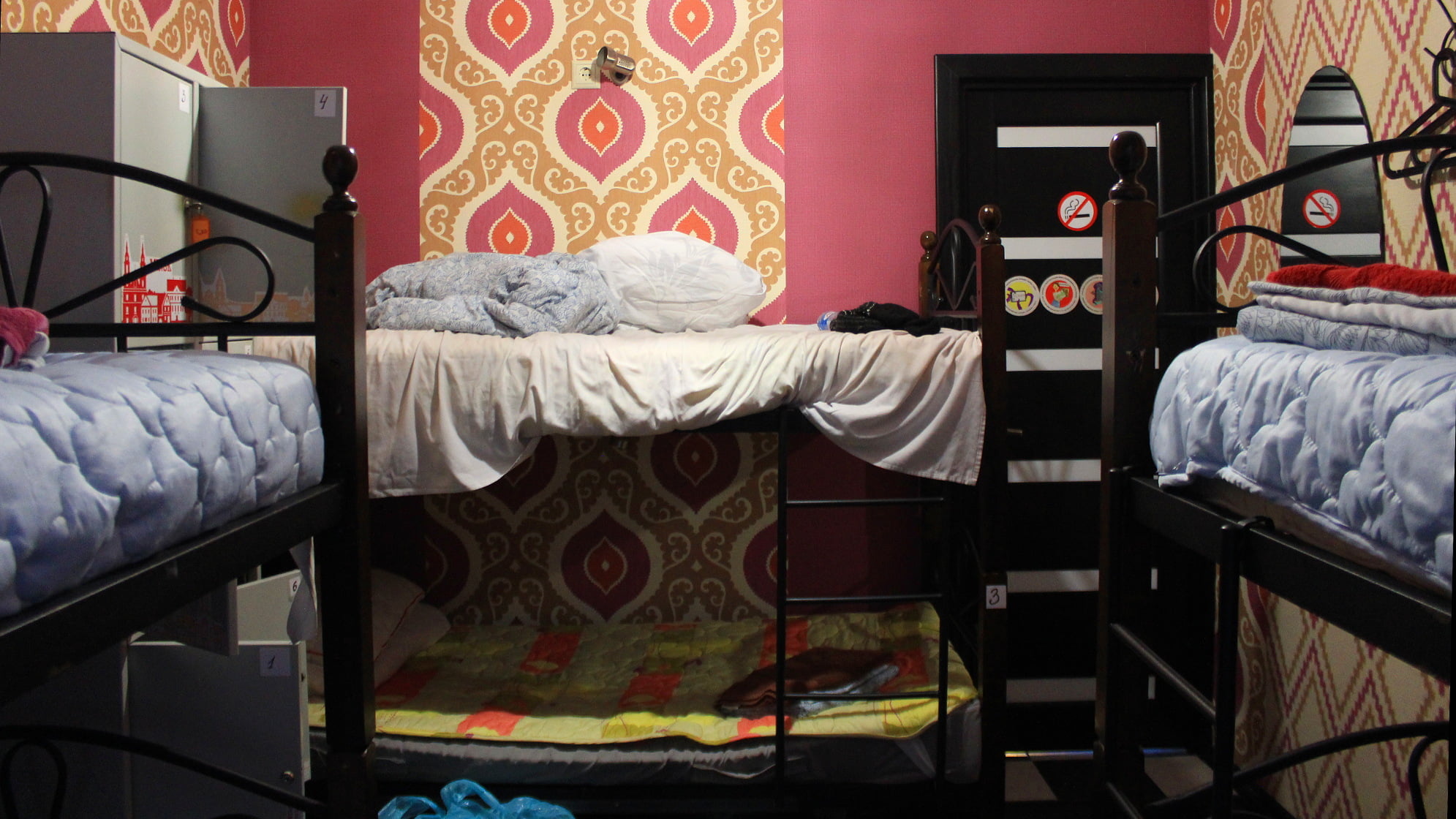
It’s not too crowded here! After the first night, I was the only guest in my 6 bed dorm in Minsk.
Backpacking in Belarus
Indeed, why did I come to Belarus? Even if I had spoken more Russian, I couldn’t have given a much better answer. Just because it’s there: A huge mass of land that would stand out as an empty spot and taunt me if I’d ever draw a map of all the European countries I’ve visited.
Because it’s Belarus; because it’s something different.
”We don’t have the Pyramids or the Great Wall of China here” my friendly hostel manager, Juliya, said to me the following day. Juliya’s hostel, Hostel Trinity, is located in a beautiful spot right near next to the center of Minsk. The place opened just last year and is one of only few hostels in the city. Luckily, backpacker culture has recently started to get some foothold in the country.
Compared to many other Eastern European countries that I’ve covered on this travel blog, there’s little tourism in Belarus. Foreign travellers usually come from Russia, Ukraine or other former Soviet countries. Most of the locals don’t speak English, so the country can be a very challenging destination for Western travelers. And then there’s painstaking and expensive visa application process that is sure to alienate the casual voyagers.
Rumor has it that the Belarusian authorities might loosen the visa requirement for trips of no more than five days in the future. I truly hope this to be true.
(UPDATE: The rumor turned out to be true. Since February 2017, citizens of 80 different countries can travel to Belarus without a visa for a maximum stay of five days. However, the only allowed entry point is the Minsk National Airport. You can see more information here.)
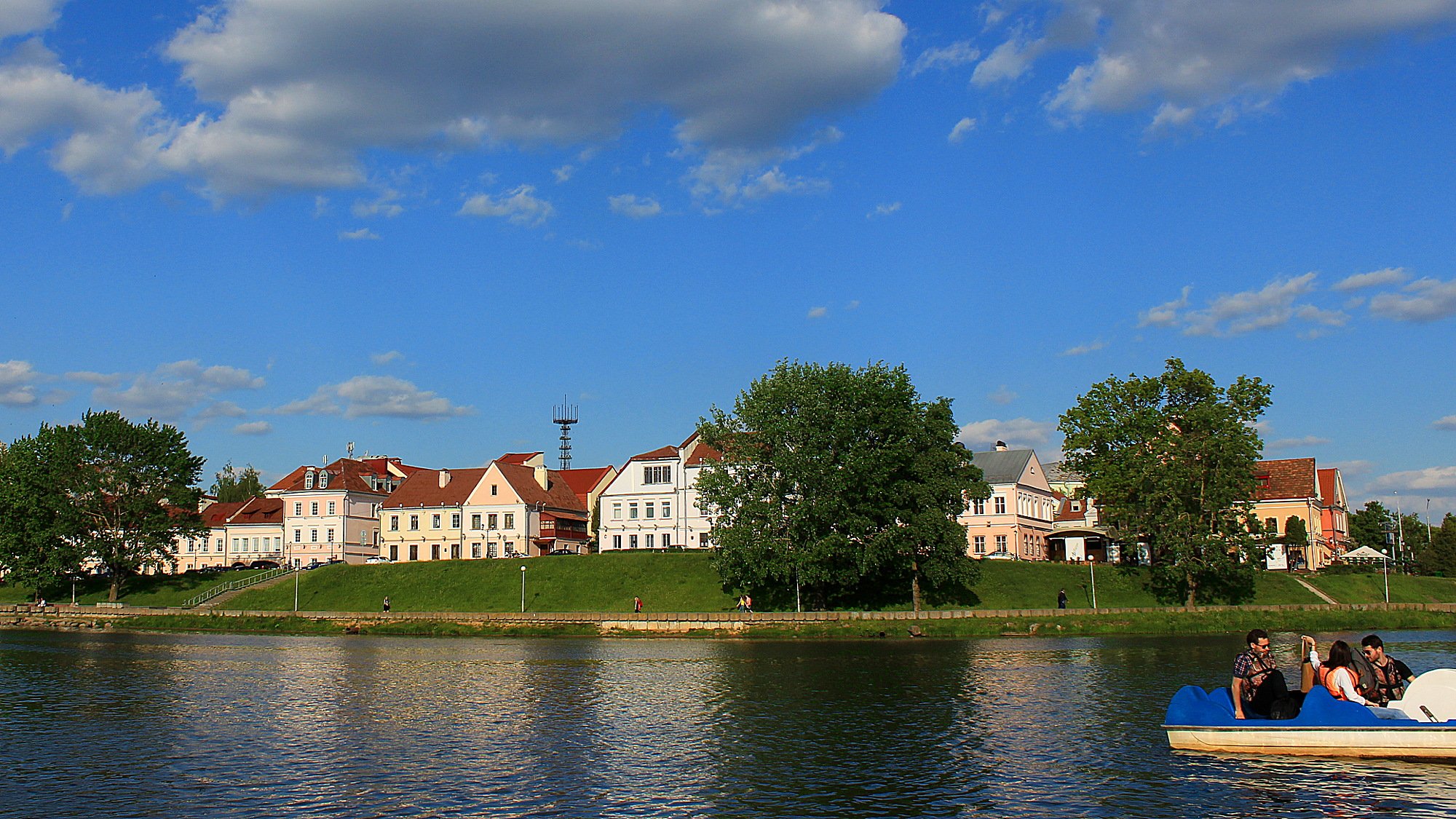
Hostel Trinity is located in this fantastic block just next to the city centre.
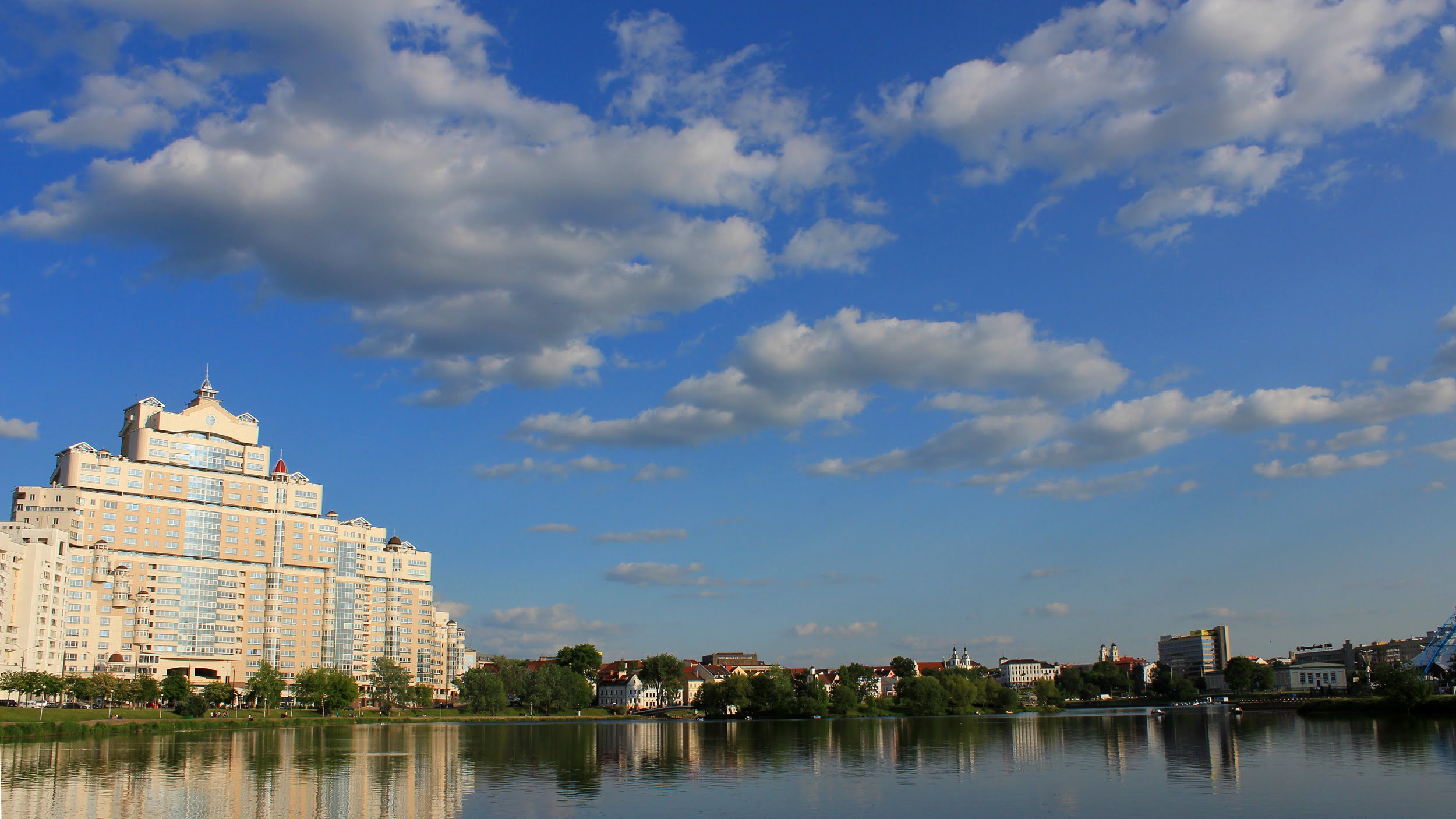
However, one didn’t need to go far to spot the massive megastructures. The same neighborhood is now in the middle of the view.
A Country with a Reputation
It also doesn’t help that the international reputation of Belarus is not very good. Known as ”Europe’s last dictatorship”, the name of the country either rings no bells at all or the bells tend to clatter badly off-key.
Corruption, human rights violations, censorship. The reputation of the country is personified in the president of Belarus, Alexander Lukashenko, who’s kept the country on a tight grip for over 20 years. ”I like to say he’s different”, my hostel manager said politely – after first describing the president in a bit more colorful terms.
The politics of Belarus have affected attitudes towards all Belarusian – even if they were away from their country for a reason. This is an interesting but risky phenomenon that is not limited to Belarus. For example, the politics of Vladimir Putin have increased racism against Russians – even though most of these people don’t have much say in their country’s foreign policy.
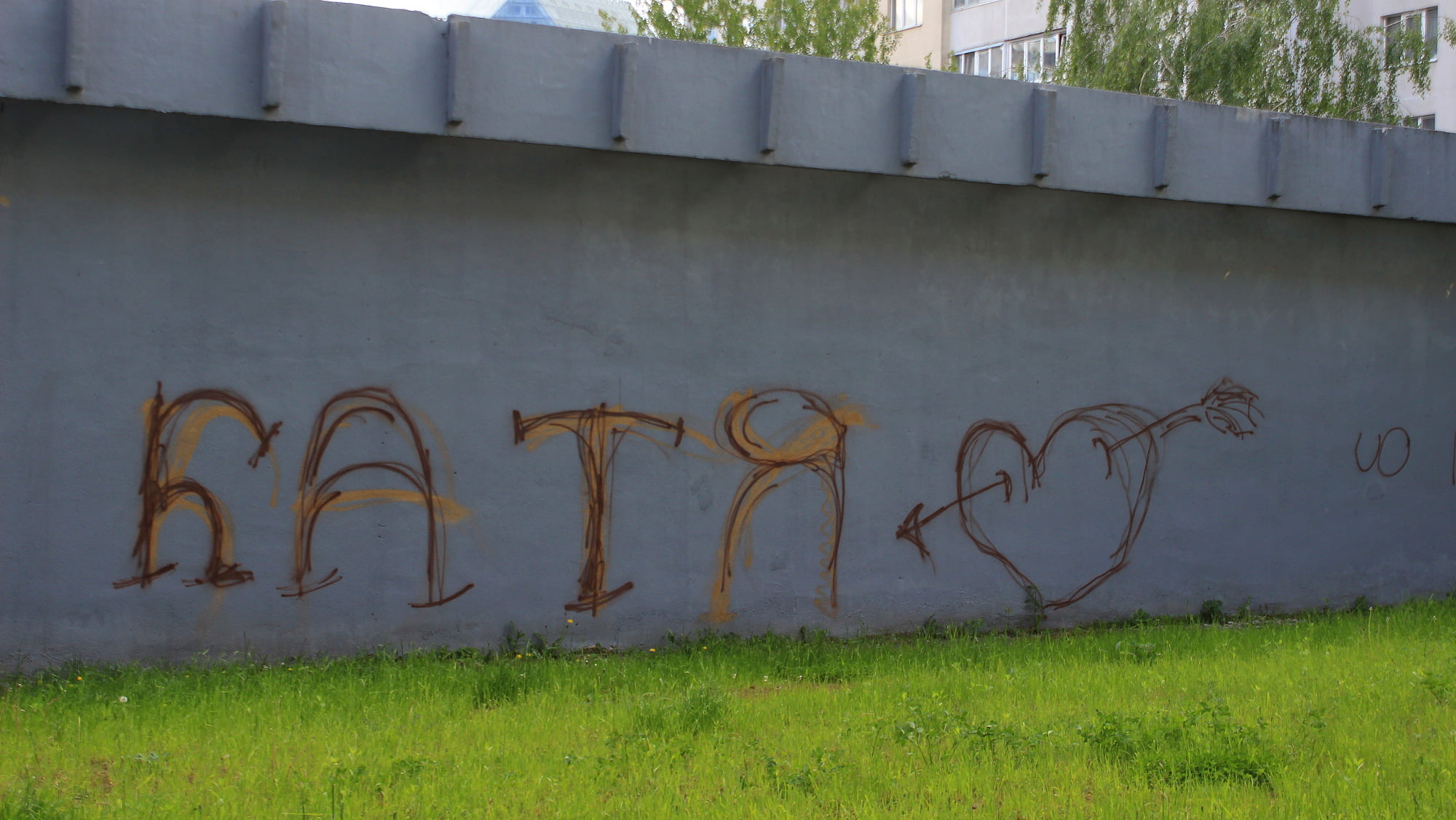
In both Belarus and Russia, it’s typical to find huge spray paintings and wall scriptures that declare love to someone. Open signs of affection were also very common, especially in Minsk. Even in the public parks, young couples would neck intimately with the girl sitting astride on the boy’s lap.
It’s much easier to see this from your own perspective. At least I wouldn’t want anyone to assume that I completely agree with the values of the current (slightly conservative and right-wing) government of Finland. I also believe that half of the U.S. population would eagerly distance themselves from their president’s policies.
We easily forget that no matter how different governments are, the people in all countries are fundamentally as diverse and humane everywhere. Likewise, the citizens of Belarus are as genuine and friendly as any other people anywhere else.
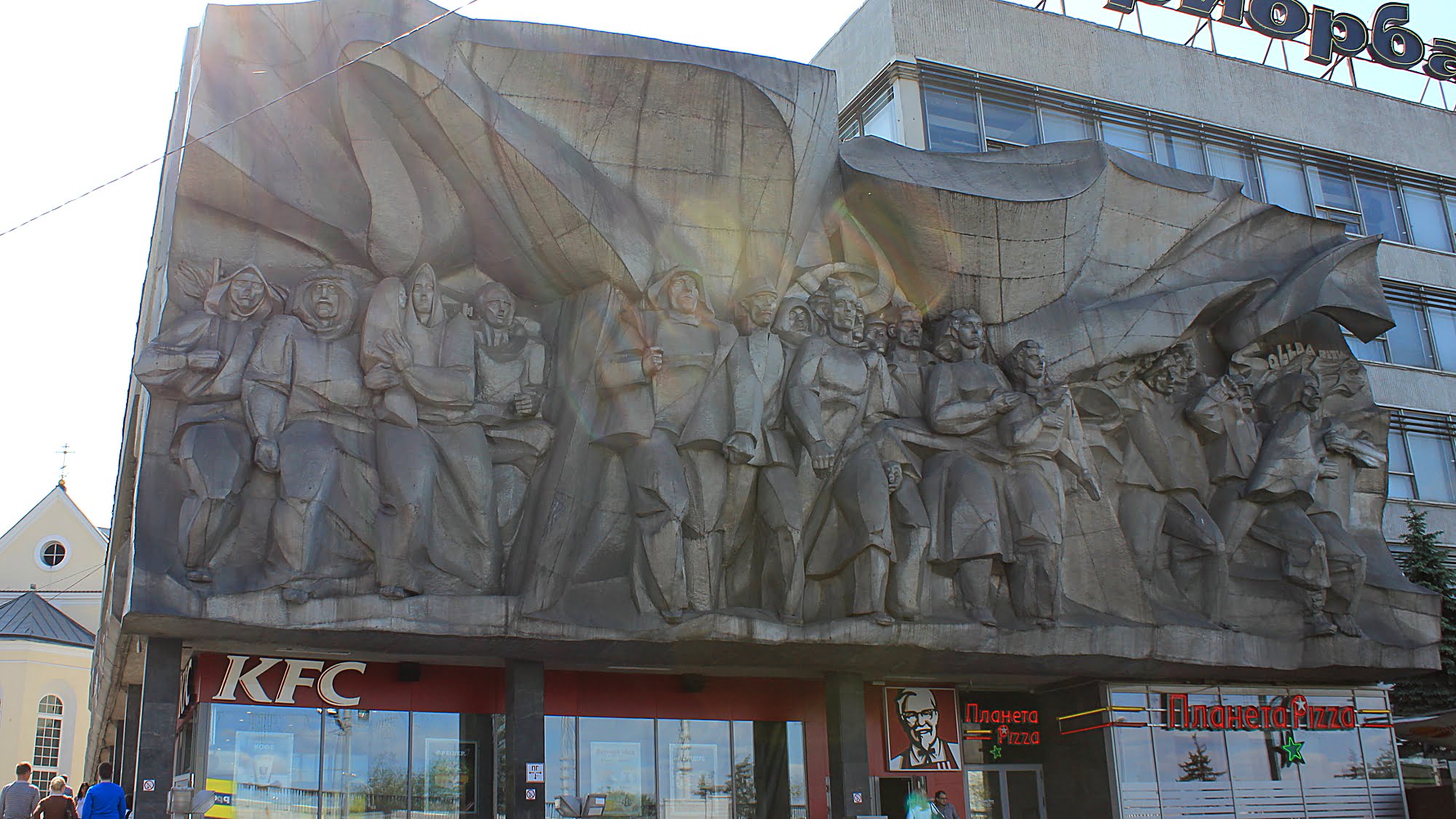
Modern Belarus: Socialist wall sculpture and a KFC.
An Offbeat Choice
If you expect ”the last dictatorship of Europe” to be somehow similar to North Korea (which I visited in 2015), you’re in for a disappointment. The government buildings and squares in both Minsk and Pyongyang may share a similar megalomaniac scale, but that’s just about where the similarities end. Instead of being a life-size puppet theatre, Minsk is a modern and bubbling metropolis with a surprising amount of greenspace even in the city centre.
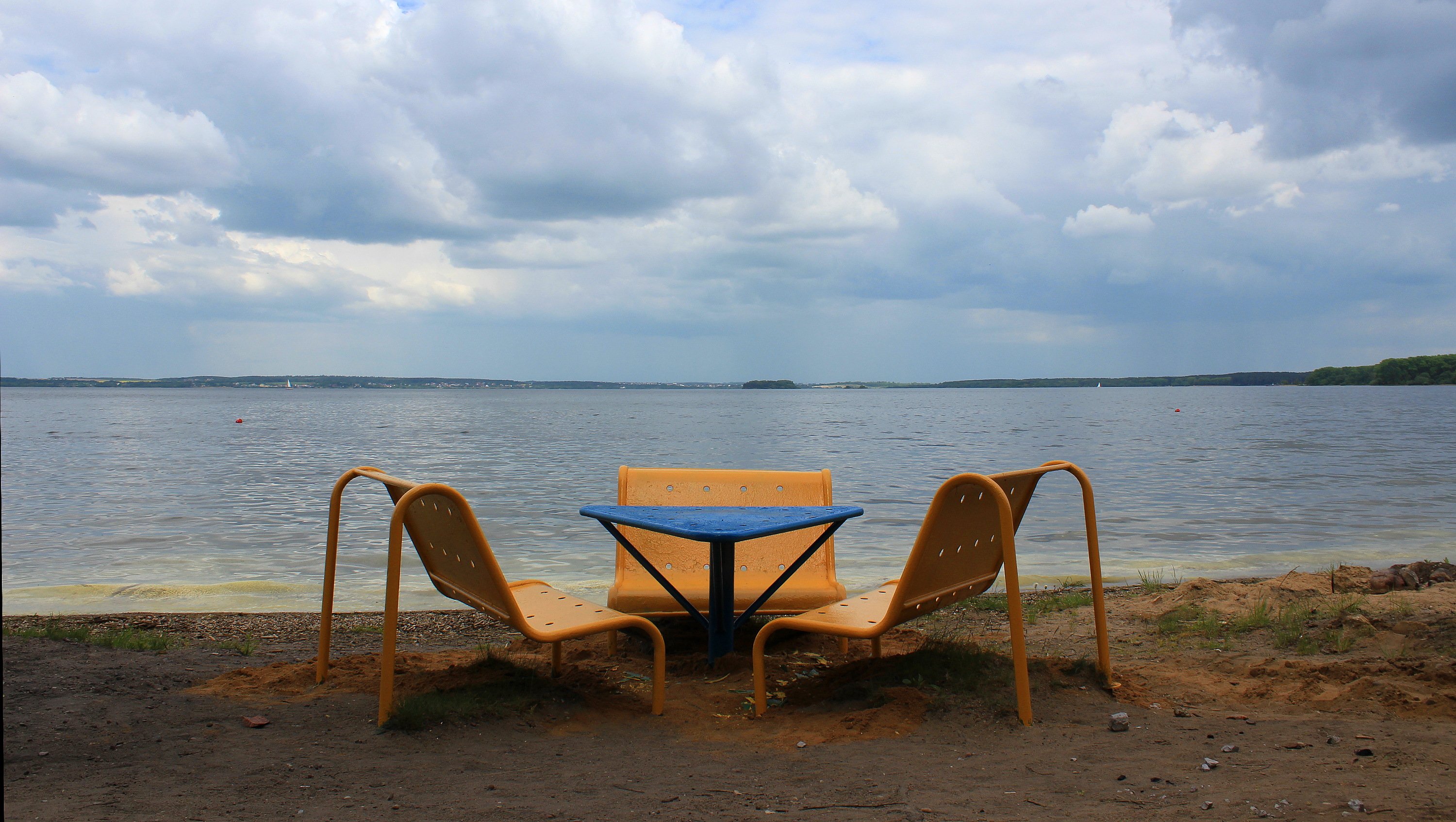
The Minsk Sea is a popular leisure spot near Minsk.
Would I recommend traveling to Belarus? Yes! Would I recommend backpacking in Belarus to travelers who don’t speak any Russian? I’m not so sure. While I could run basic errands with my crude Russian, the language barrier made deeper discussions mostly impossible. It was hard to meet locals as a solo traveller in Belarus.
In Baltic countries such as Estonia, the language barrier is slowly crumbling as younger generations learn English. This is not necessarily the case in Belarus, where asking ”Вы говорите по-английски?”, do you speak English? at a fast food restaurant was usually responded with a nervous headshake and a quick ”нет”.
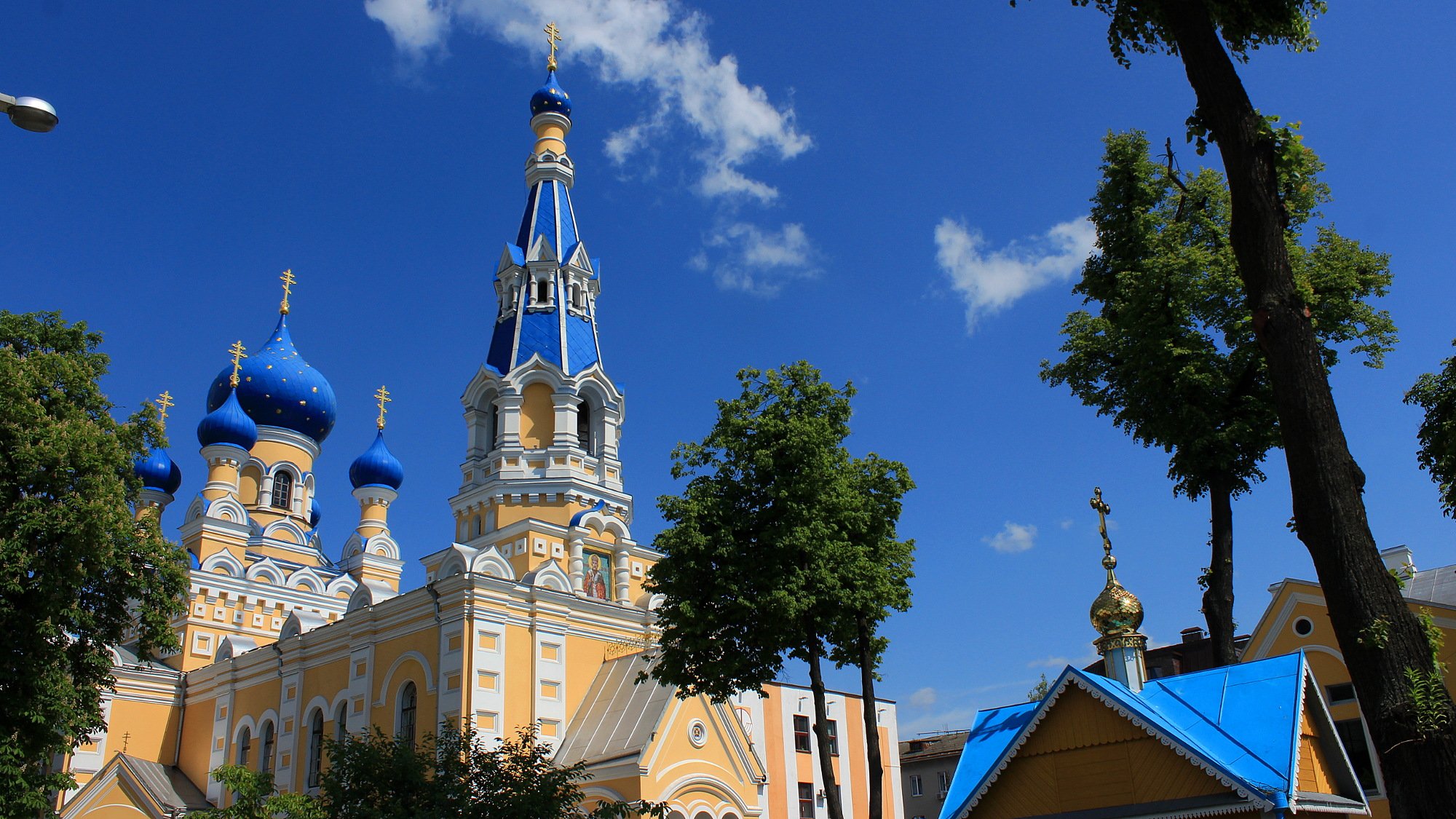
From Minsk, I continued to the historical city of Brest in western Belarus.
Whenever you get past the language barrier, however, Belarus will reveal it’s glimmer to you. This is a beautiful country with interesting culture, nature and history. If you don’t count the expensive visa, the low price level makes backpacking in Belarus an attractive choice.

The greenness of Belarus and it’s cities is a national pride of Belarusians, and for a good reason. This river flowed very close to the city centre of Brest.


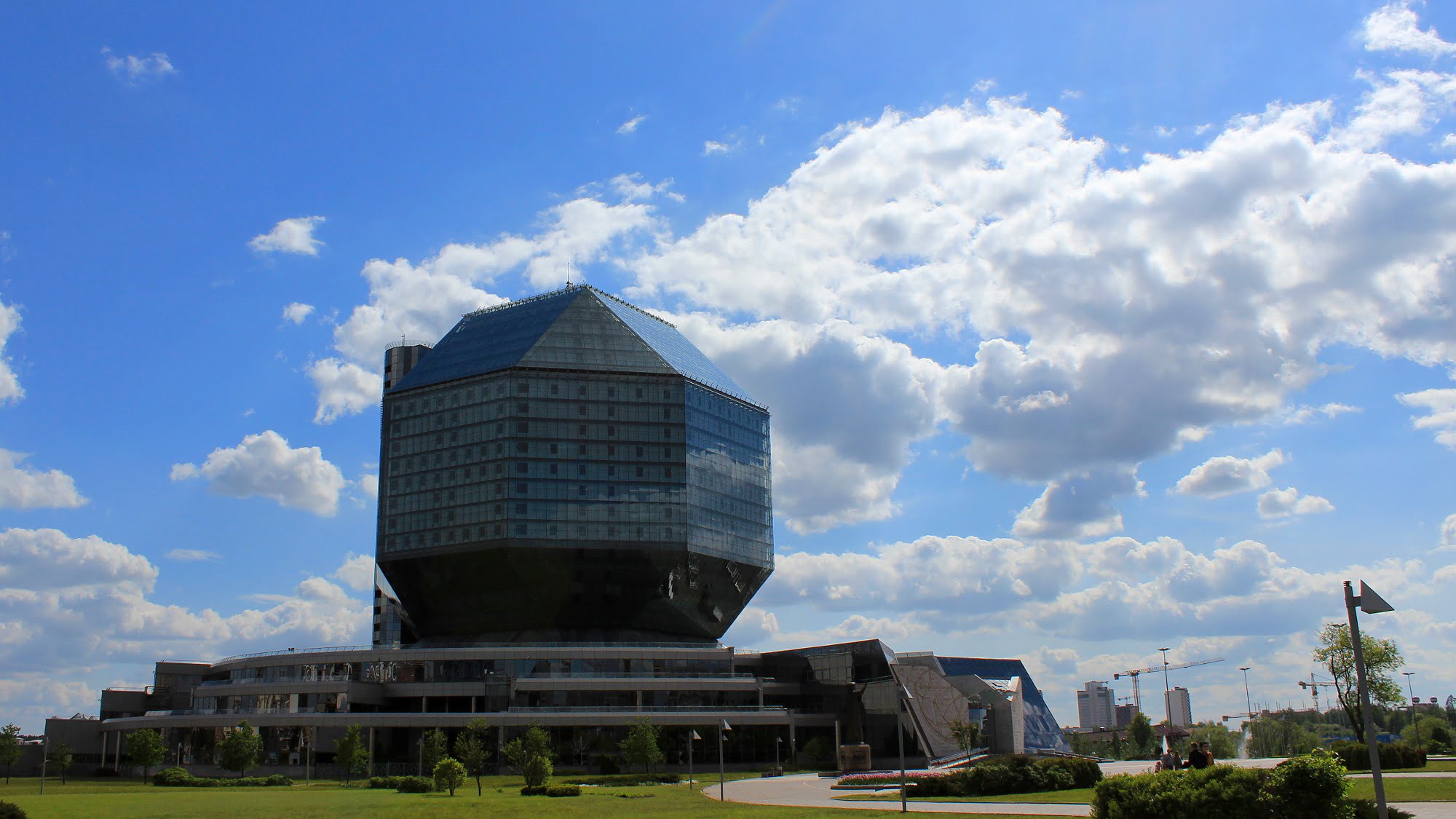
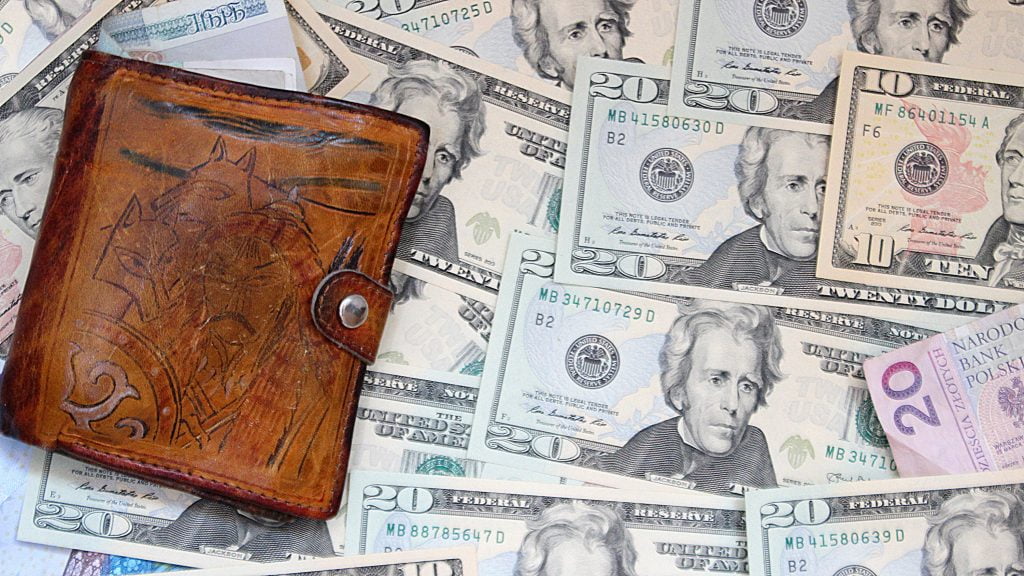
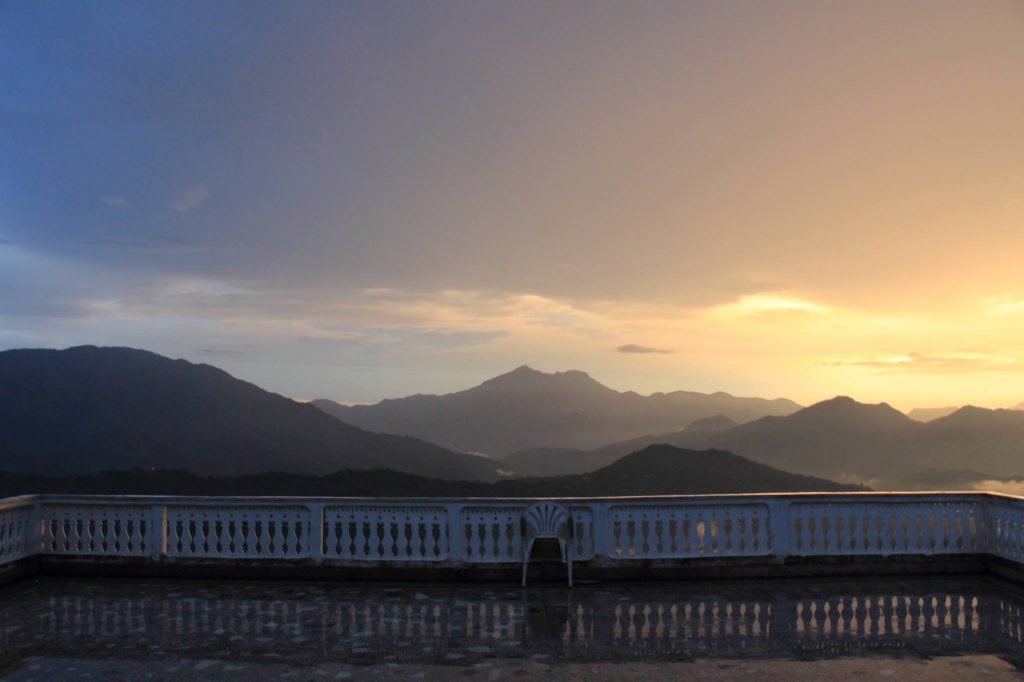
7 comments
This is a really great post! I’m planning on going to the Baltics this year and really want to tag Belarus onto the trip. I really like your point on how how a government’s political values do not represent all of its citizens. It seems like such an obvious point, but so many people are quick to make generalisations. I experienced something quite similar when visiting Kosovo!
Thank you! 🙂 Besides Belarus, I also made the same realization in Iran. I think that’s something travel teaches you, as you meet great people in all kinds of cultures.
How long do you plan to stay in the Baltics? 🙂 I haven’t been to Kosovo yet, but I plan to visit more countries in the Balkans in the future.
Actually, the government did enable the five-day visa free mode this February – https://www.youtube.com/watch?v=tbrjMDXXfw8
Thanks for the post. Were u able to travel freely once u entered the country, with out haveing to book everything ahead?
I needed an invitation from a hotel to enter the country, but otherwise traveling is not restricted.